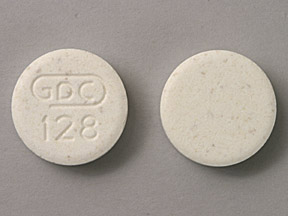Alginic acid/aluminum hydroxide/magnesium trisilicate Disease Interactions
There are 2 disease interactions with alginic acid / aluminum hydroxide / magnesium trisilicate.
Aluminum-containing antacids (applies to alginic acid/aluminum hydroxide/magnesium trisilicate) constipation
Major Potential Hazard, High plausibility. Applicable conditions: Renal Dysfunction, Intestinal Obstruction, Phosphate Imbalance
Aluminum containing antacids may produce constipation, which may lead to intestinal obstruction. Osteomalacia and hypophosphatemia may be produced in patients with renal dysfunction who are not receiving dialysis. Patients with renal dysfunction, intestinal obstruction, osteomalacia, or hypophosphatemia should use antacids with low or no aluminum content.
Magnesium salts (applies to alginic acid/aluminum hydroxide/magnesium trisilicate) renal dysfunction
Major Potential Hazard, High plausibility.
Magnesium is eliminated by the kidney. The serum concentration of magnesium is increased in patients with renal impairment. Magnesium toxicity includes CNS depression, muscular paralysis, respiratory depression, hypotension and prolonged cardiac conduction time. Disappearance of the patellar reflex is a useful clinical sign of magnesium intoxication. Therapy with magnesium should be administered cautiously and dosages should be modified in patients with compromised renal function. Clinical monitoring of serum magnesium levels is recommended.
Alginic acid/aluminum hydroxide/magnesium trisilicate drug interactions
There are 258 drug interactions with alginic acid / aluminum hydroxide / magnesium trisilicate.
Alginic acid/aluminum hydroxide/magnesium trisilicate alcohol/food interactions
There is 1 alcohol/food interaction with alginic acid / aluminum hydroxide / magnesium trisilicate.
More about alginic acid / aluminum hydroxide / magnesium trisilicate
- Check interactions
- Compare alternatives
- Side effects
- Dosage information
- During pregnancy
- Drug class: antacids
Related treatment guides
Drug Interaction Classification
| Highly clinically significant. Avoid combinations; the risk of the interaction outweighs the benefit. | |
| Moderately clinically significant. Usually avoid combinations; use it only under special circumstances. | |
| Minimally clinically significant. Minimize risk; assess risk and consider an alternative drug, take steps to circumvent the interaction risk and/or institute a monitoring plan. | |
| No interaction information available. |
Further information
Always consult your healthcare provider to ensure the information displayed on this page applies to your personal circumstances.


